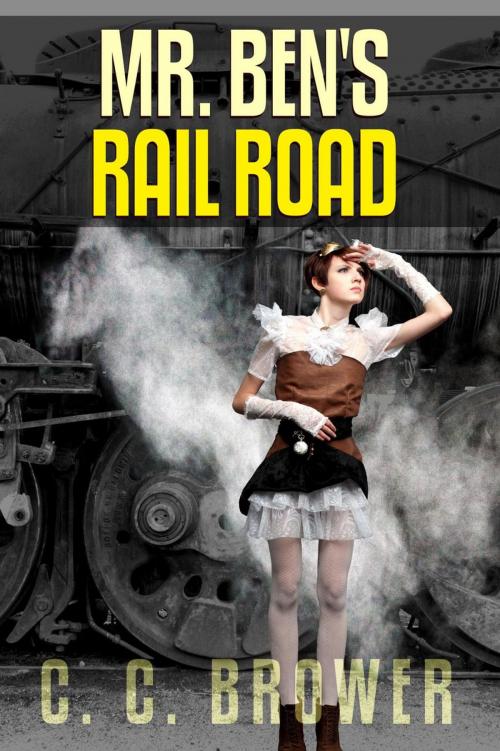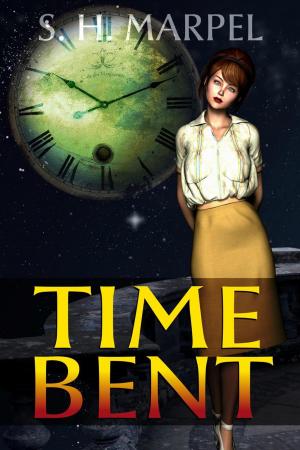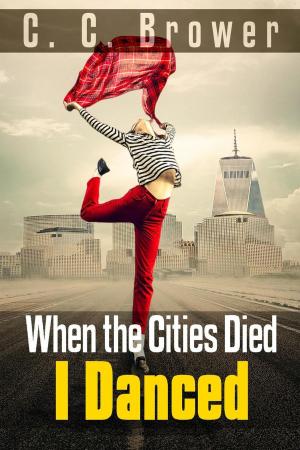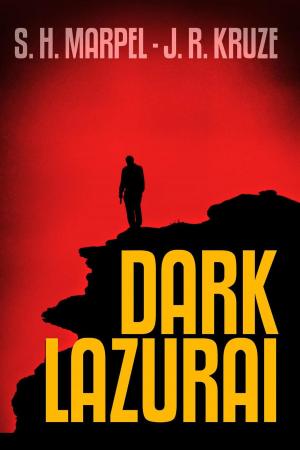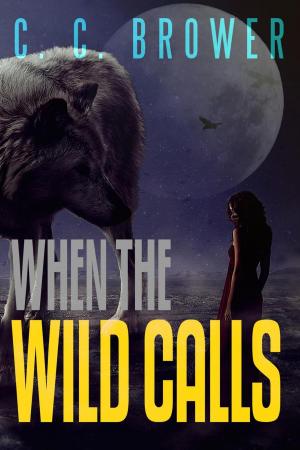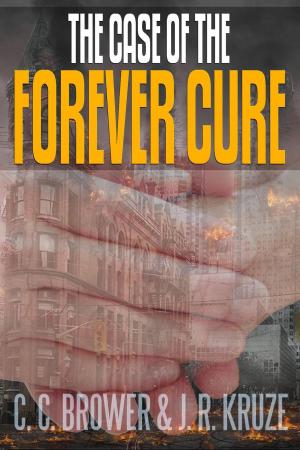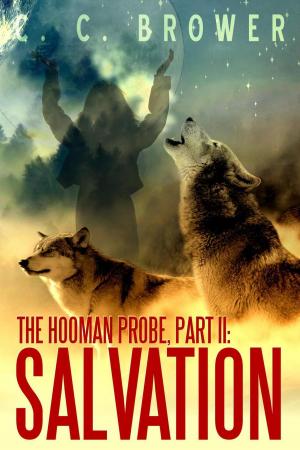Mr. Ben's Rail Road
Speculative Fiction Modern Parables
Science Fiction & Fantasy, Steampunk, Fiction & Literature, Short Stories| Author: | C. C. Brower | ISBN: | 9781386357209 |
| Publisher: | Live Sensical Press | Publication: | January 6, 2019 |
| Imprint: | Language: | English |
| Author: | C. C. Brower |
| ISBN: | 9781386357209 |
| Publisher: | Live Sensical Press |
| Publication: | January 6, 2019 |
| Imprint: | |
| Language: | English |
The surest sign of civilization returning to an area is in the trading and stories.
Festivals had long been attended between the villages, using horse and oxen-pulled wagons along the old cracked and buckled paved roads. And caravans of these would travel back and forth and enrich the brave and adventurous - or that was the hope.
For others, it was simply the hope of news that humankind was again populating the open plains and new-forested lands Nature had reclaimed in their absence.
Mr. Ben was a student of old texts. And he bartered his services as a blacksmith for old texts as often as food or other supplies.
It was no real surprise of his announcement that he had restored a working eco-diesel engine, so he could run it along the old rail lines back into the former "big city" and all the small towns in between. Repairing as they went. A long, slow process.
He accepted one young girl, a writer, along with the rough men and boys - so she could record the history as it was made...
Excerpt:
This rail-train was the first time sincce the Rising where anyone really tried to tie in the remains of the two cities and all the villages together. It was the first real civilization we'd seen for a while. Sure, we got areas that got weaving down to something finer than homespun. And by now our tanning hides and leather-making was as good as it had ever been. Blacksmithing had brought a lot of our mechanical world back, but few gas or diesel-powered anything, until just a few years back. Distilling alcohol for fuel needed infrastructure. Converting the old small engines was first. We could always use pumps. Everything else was horse-, wind-, or water-powered.
A big rail-engine pulling a short train of container-cars and flatbeds was huge news to us all.
That's where I came in, to make a record of all this. Like a journal. I guess my writing was our first newspaper even though it was made by hand.
There was big hope that the people who had survived in the cities had worked out some of these problems. I was kinda excited about talking to these people, just to hear and write down their stories. This was a big point of trust for us. Like I said earlier, it had been over a hundred years since anyone had traveled from the outer villages to the wastelands of the cities.
....
It was just slow going this first trip as so much of the railroad was in poor repair with their ties rotted out. He said he actually didn't know if they would make it to the cities. If they ran out of ties and repair equipment, the heavy rail-engine would have to go back. The lightest self-powered rail carts might make it if the rails were still there.
The reports he had gotten said they were. He'd collected those reports by sending a special cart with over-sized wheels and a tagged on a set of helper-wheels that would keep it on the track. It was horse-pulled, but could only make a few dozen miles a day at best. The horse had to be rested, and fed and watered. It would take a week or more to travel from their village to the city if everything went well. One way.
Mr. Ben said this was his third summer to be working at this. He'd never gotten up to our village before. The problem has been with trestle-bridges that had to be replaced. The wooden ones. Steel and concrete had held together well, but a few of the wooden ones still existed. Those little horse-drawn carts could go off the tracks and come back around to get back on again. And that is how he was able to determine that the last push right up to the cities would work.
We'd heard of these carts running up and back down the rails. But with due caution about strangers, they hadn't been approached...
Scroll Up and Get Your Copy Now
The surest sign of civilization returning to an area is in the trading and stories.
Festivals had long been attended between the villages, using horse and oxen-pulled wagons along the old cracked and buckled paved roads. And caravans of these would travel back and forth and enrich the brave and adventurous - or that was the hope.
For others, it was simply the hope of news that humankind was again populating the open plains and new-forested lands Nature had reclaimed in their absence.
Mr. Ben was a student of old texts. And he bartered his services as a blacksmith for old texts as often as food or other supplies.
It was no real surprise of his announcement that he had restored a working eco-diesel engine, so he could run it along the old rail lines back into the former "big city" and all the small towns in between. Repairing as they went. A long, slow process.
He accepted one young girl, a writer, along with the rough men and boys - so she could record the history as it was made...
Excerpt:
This rail-train was the first time sincce the Rising where anyone really tried to tie in the remains of the two cities and all the villages together. It was the first real civilization we'd seen for a while. Sure, we got areas that got weaving down to something finer than homespun. And by now our tanning hides and leather-making was as good as it had ever been. Blacksmithing had brought a lot of our mechanical world back, but few gas or diesel-powered anything, until just a few years back. Distilling alcohol for fuel needed infrastructure. Converting the old small engines was first. We could always use pumps. Everything else was horse-, wind-, or water-powered.
A big rail-engine pulling a short train of container-cars and flatbeds was huge news to us all.
That's where I came in, to make a record of all this. Like a journal. I guess my writing was our first newspaper even though it was made by hand.
There was big hope that the people who had survived in the cities had worked out some of these problems. I was kinda excited about talking to these people, just to hear and write down their stories. This was a big point of trust for us. Like I said earlier, it had been over a hundred years since anyone had traveled from the outer villages to the wastelands of the cities.
....
It was just slow going this first trip as so much of the railroad was in poor repair with their ties rotted out. He said he actually didn't know if they would make it to the cities. If they ran out of ties and repair equipment, the heavy rail-engine would have to go back. The lightest self-powered rail carts might make it if the rails were still there.
The reports he had gotten said they were. He'd collected those reports by sending a special cart with over-sized wheels and a tagged on a set of helper-wheels that would keep it on the track. It was horse-pulled, but could only make a few dozen miles a day at best. The horse had to be rested, and fed and watered. It would take a week or more to travel from their village to the city if everything went well. One way.
Mr. Ben said this was his third summer to be working at this. He'd never gotten up to our village before. The problem has been with trestle-bridges that had to be replaced. The wooden ones. Steel and concrete had held together well, but a few of the wooden ones still existed. Those little horse-drawn carts could go off the tracks and come back around to get back on again. And that is how he was able to determine that the last push right up to the cities would work.
We'd heard of these carts running up and back down the rails. But with due caution about strangers, they hadn't been approached...
Scroll Up and Get Your Copy Now
